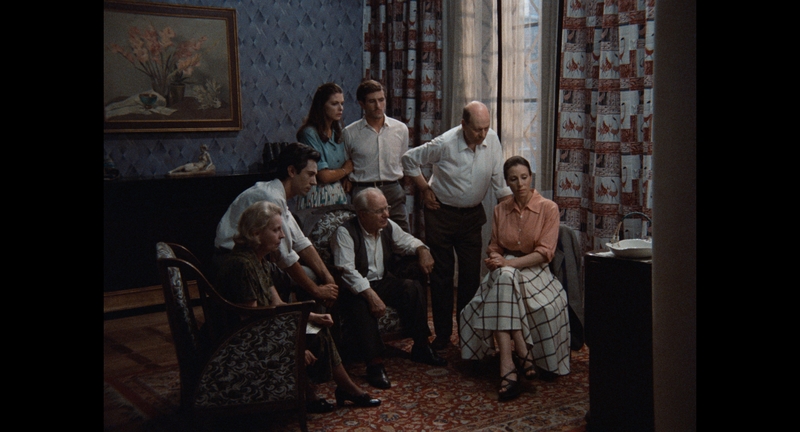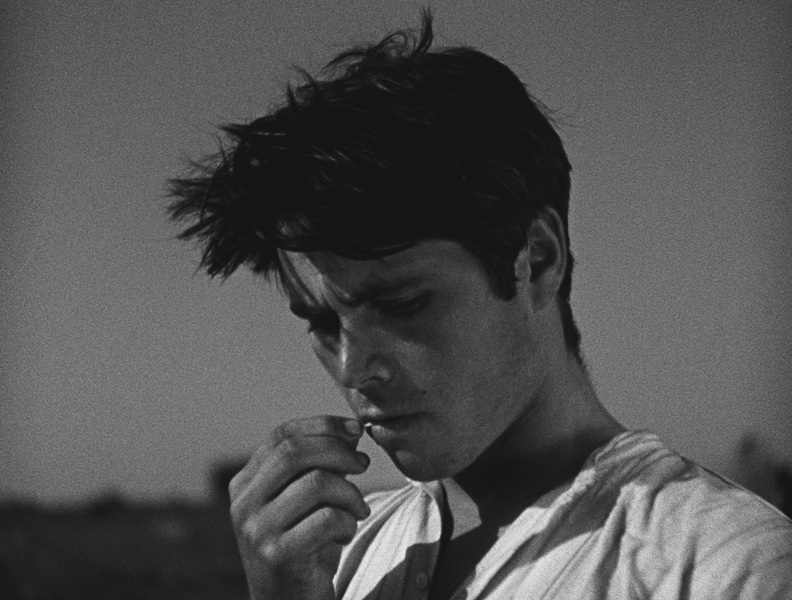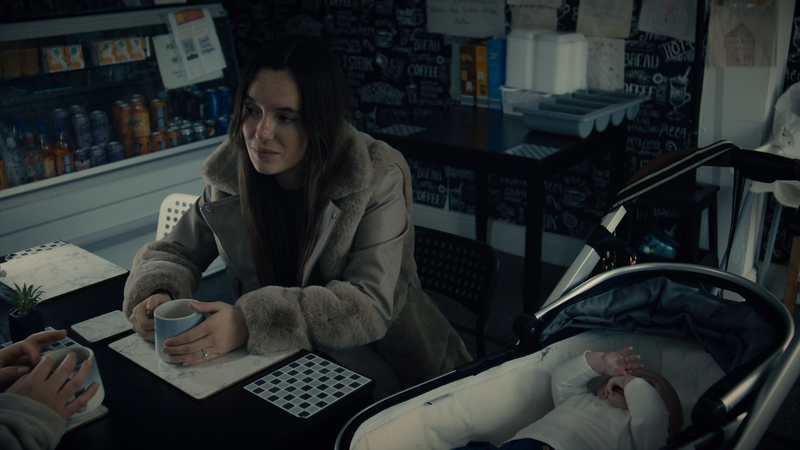
A Cautionary Tale About Leading Without Losing Yourself
MOVIE REVIEW
Year One (Anno uno)
–
Genre: Drama, Historical, Biographical
Year Released: 1974, 4K restoration 2025
Runtime: 1h 55m
Director(s): Roberto Rossellini
Writer(s): Roberto Rossellini, Marcella Mariani, Luciano Scaffa
Cast: Luigi Vannucchi, Dominique Darel, Rita Calderoni
Where to Watch: shown at the 78th Locarno Film Festival
RAVING REVIEW: In ANNO UNO, the screen isn’t filled with conflict in the traditional sense. There are no giant battles, no conspiracies, and not even much tension—at least not of the cinematic kind. Instead, Roberto Rossellini presents us with a series of meticulously staged conversations that feel less like drama and more like a historical transcript. It’s deliberate, dry, and at times difficult to stay engaged with, but beneath that lies a quiet, deeply reflective portrait of a nation learning how to lead itself.
This is no sweeping epic. It’s not meant to entertain with spectacle, nor to dramatize politics for the sake of story. It’s a film with a mission—to document, to teach, and to reflect. Rossellini’s approach is almost academic, adhering to his moralizing cinematic method and heavily sourcing dialogue directly from political archives and letters. The result is a portrayal of Alcide De Gasperi—postwar Italy’s first prime minister in the new Republic—that feels grounded, sober, and to some viewers, monotonous. But Rossellini isn’t aiming for applause. He’s inviting scrutiny. This isn’t like Rossellini’s War Trilogy; this is an animal of a different species.
Luigi Vannucchi leads the film with a performance that’s more internal than expressive. As De Gasperi, he carries a weariness that never fades—appropriate for a leader tasked with holding together a fragile post-fascist Italy. Whether dealing with Vatican influence, Communist opposition, or the constant strain of coalition-building, De Gasperi is neither a fiery orator nor a charismatic hero. He’s a man who leads by restraint. Some might call that wooden; others might call it accurate. Either way, it fits Rossellini’s approach: this isn’t about dramatizing a man—it’s about understanding his decisions.
That said, it’s also fair to point out that this style often keeps the viewer at arm’s length. While the restoration brings new vibrancy to Mario Montuori’s cinematography and gives the film a surprisingly ageless look, the content can still feel locked in its museum case. The dialogue is dense, full of speeches and debates that reveal political fractures, but it rarely translates those fractures into emotion. Romana De Gasperi (Dominique Darel) and other supporting characters barely register as distinct personalities, serving more as voices for different viewpoints than as individuals living through this turbulent moment.
ANNO UNO covers a pivotal decade—1944 to 1954—but does so through a series of extended political rants that favor context over conflict. The Vatican’s push for influence, the rise of the Communist Party, and the birth of the European Union are all present, but not in ways that offer propulsion. Instead, Rossellini wants viewers to lean in, to listen, and to reflect on what it means to govern without surrendering your values.
There’s something admirable, though, in just how stubbornly the film refuses to sensationalize. Rossellini’s long takes, minimal score, and naturalistic lighting reinforce the idea that this isn’t a dramatization—it’s a reflection. He was famously quoted as saying cinema should be “a vehicle for truth,” and ANNO UNO embodies that mission to a fault. The realism is unflinching, even when it means sacrificing tension or momentum.
From a restoration standpoint, the 4K presentation is gorgeous, with crisp textures and sound that elevate the archival integrity of the film. This re-release allows a new generation to reengage with one of Rossellini’s most ideologically dense films. Cinegrell’s restoration effort, backed by Locarno’s Heritage program and Cinecittà, represents a milestone in historical preservation.
But it also raises a fair question: does ANNO UNO resonate beyond academic circles? For cinephiles invested in postwar Italian history or Rossellini’s body of work, there’s plenty to chew on. The parallels between then and now—political polarization, the role of religion in governance, the fragility of democracy—are striking. The film’s calm tone and intellectual rigor offer a rare space for contemplation. Yet for those seeking drama in the traditional sense, this isn’t that film.
Rossellini himself understood that cinema could serve many purposes, and ANNO UNO isn’t trying to entertain so much as to challenge. It doesn’t hand you catharsis. It barely gives you narrative closure. Instead, it asks you to think about the weight of leadership, the complexity of compromise, and the slow, often invisible work of rebuilding a nation. In a time when democracies worldwide feel increasingly fragile, that reflection may be more relevant than ever.
Still, this isn’t Rossellini’s most emotionally potent work. It lacks the visceral urgency of ROME, OPEN CITY, or the humanism of PAISAN. But what it offers is no less important. It’s a document—a lesson—and if you meet it on its terms, ANNO UNO quietly earns your respect. As a fan of Rossellini’s filmography, I wouldn't suggest this film to everyone, but having watched many of his other works thanks to several must-watch lists, I feel that this is an almost vital piece to his larger puzzle.
Please visit https://linktr.ee/overlyhonestr for more reviews.
You can follow me on Letterboxd, Instagram, Twitter, and YouTube. My social media accounts can also be found on most platforms by searching for 'Overly Honest Reviews'.
I’m always happy to hear from my readers; please don't hesitate to say hello or send me any questions about movies.
[photo courtesy of ITALNOLEGGIO CINEMATOGRAFICO, RUSCONI FILM]
DISCLAIMER:
At Overly Honest Movie Reviews, we value honesty and transparency. Occasionally, we receive complimentary items for review, including DVDs, Blu-rays, CDs, Vinyl Records, Books, and more. We assure you that these arrangements do not influence our reviews, as we are committed to providing unbiased and sincere evaluations. We aim to help you make informed entertainment choices regardless of our relationship with distributors or producers.
Amazon Affiliate Links:
Additionally, this site contains Amazon affiliate links. If you purchase through these links, we may receive a commission. This affiliate arrangement does not affect our commitment to honest reviews and helps support our site. We appreciate your trust and support in navigating these links.



Average Rating